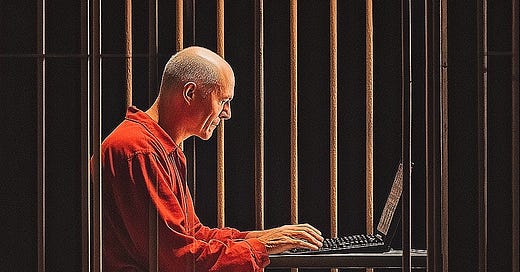Truth(s) as a Semantic Convenience
Is the person known as Mel today the same person he was yesterday?
Without dependence on everyday practice, the ultimate is not taught. Without resorting to the ultimate, nirvana is not attained. —Nāgārjuna in Mulamadhyamakakarika
By and large, Kaccāna, this world is supported by a polarity, that of existence and non-existence. But when one sees the origination of the world as it has come to be with right discernment, “non-existence” with reference to the world does not occur to one. When one sees the cessation of the world as it has come to be with right discernment, “existence” with reference to the world does not occur to one. —From the Kaccānagotta Sutta translated by Ṭhānissaro Bhikkhu
The “two truths doctrine,” which distinguishes between conventional and ultimate realities, is both a cornerstone of Buddhist philosophy and a stumbling block to accepting Buddhism. The scholar and pillar of Secular Buddhism Stephen Batchelor says:
The two-truths doctrine is the single greatest disaster to hit Buddhism.
He feels it leads to a double standard “not only philosophically, but behaviorally.” I respect Batchelor’s scholarship and his bluntness—which I, too, have been known to engage in—but I prefer to avoid either/or thinking. We can accept that an ultimate reality exists while recognizing the reality of here and now and the need to live ethically here and now.
The idea for this post arose from a course I’m currently taking from the Wisdom Academy Online called Buddhism As Philosophy: Nonself and Reality, taught by Buddhist philosopher Mark Sideritz. He suggests the doctrine is widely misunderstood because truth is a semantic convenience. We agree on the truth that our lives are continuous from day to day—that the person known as Mel today is the same person he was yesterday. That’s convenient—necessary, probably—in this relative reality.
The problem is trying to make sense of one truth using the language and associated mindset of the other. Sideritz feels there needs to be an “impenetrable membrane” between the two truths. Using the language and mindset of relative reality, we’d say that Mel is, of course, the same person he was yesterday. If not, how could we hold him responsible for the crime he committed? In the logic and semantics of ultimate reality, it would be cruel and unusual to imprison him for what the yesterday Mel did.
If Mel is not the same person from one day to the next, we might as well say that the world does and does not exist! Well, in the quote from the Kaccānagotta Sutta above, the Buddha is saying something like that. Trying to understand one truth using the words and mindset of the truth reminds me of the phrase:
You can’t get there from here.
That is, you can’t get there using earthly semantics and logic. Meditation, poetry, nature, music, or a shock like a near-death experience might do the trick. Or how about a simple Zen “transmission of the lamp” poem?
Before I studied Zen, mountains were mountains and waters were waters… After enlightenment, mountains are again mountains and waters are waters.
The Buddha was a master of tailoring his message to his audience. He understood that his students needed to understand the relative world and remove the arrows of unnecessary suffering before they could grok ultimate reality. Here is how Ṭhānissaro Bhikkhu expresses it:
The Buddha used both levels of truth in instructing his disciples. For instance, when teaching the precepts or the practice of universal goodwill, he spoke in terms of conventional truths. When teaching insight, he—for the most part—spoke in terms of ultimate truths.
The Buddha didn’t cross the impermeable membrane.
If you’re confused, this will clear it up:
From the Pure Land has thousands of readers and subscribers in 40 U.S. states and 20 countries, and the podcast has thousands of listeners in 55 countries.
Consider the generous act of paying for your subscription even though you’ll receive the same regular content as those with a free subscription. For $5 a month or $50 a year, you’ll contribute to Mel’s expenses and see parts of his book The New Middle Way as it progresses.
Share this post with a friend.
Give Mel a one-time “tip” of any amount.
Listen and subscribe to the From the Pure Land podcasts via your favorite app or by clicking here.




